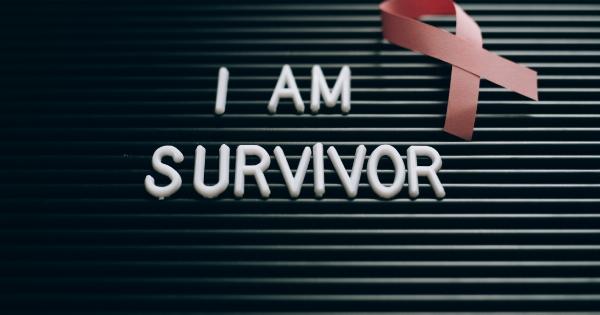Breast cancer is a significant health concern affecting millions of women worldwide.
While advancements in diagnosis, treatment, and support have improved survival rates, there is a growing population of long-term breast cancer patients who face unique challenges and need specialized care. These patients, who have been living with breast cancer for five years or longer, are demanding the establishment of a national control program to address their specific needs.
The Importance of Long-term Breast Cancer Care
Surviving breast cancer is a milestone worth celebrating, but it also comes with ongoing physical, emotional, and psychological burdens.
Long-term breast cancer survivors often grapple with the lingering effects of treatment, such as fatigue, pain, lymphedema, and hormonal imbalances. Additionally, they are at an increased risk of developing secondary cancers, heart disease, osteoporosis, and mental health issues like anxiety and depression.
Despite these challenges, the healthcare system often falls short in providing comprehensive care and support for these long-term survivors.
Many breast cancer patients transition from active treatment to a phase where they receive less frequent monitoring and follow-up care. This transition can leave them feeling abandoned and isolated, as they wrestle with continuing health concerns.
The Need for a National Control Program
To address the specific needs of long-term breast cancer patients, a national control program is paramount. Such a program should focus on various aspects:.
1. Enhanced Surveillance and Monitoring
Long-term breast cancer survivors require regular check-ups and tests to detect potential recurrences or secondary cancers.
A national control program would establish standardized guidelines for surveillance, ensuring that these patients receive the necessary monitoring and follow-up care. It would also emphasize the importance of regular screenings for secondary cancers specific to breast cancer survivors.
2. Specialized Support and Education
A national control program should provide access to specialized support groups, counseling services, and educational resources tailored for long-term breast cancer patients.
These resources would address their unique concerns, including survivorship challenges, managing treatment side effects, maintaining a healthy lifestyle, and navigating the emotional and psychological impact of long-term survivorship.
3. Integrated Care and Multidisciplinary Approach
Long-term breast cancer patients often require care from multiple healthcare providers, including oncologists, surgeons, radiologists, physiotherapists, and mental health professionals.
A national control program would facilitate an integrated care approach, ensuring seamless coordination among these professionals, reducing fragmented care, and improving overall patient outcomes.
4. Survivorship Care Plans
A national control program would emphasize the development and implementation of survivorship care plans.
These plans outline the personalized follow-up care, including recommendations for surveillance, ongoing treatment, management of treatment side effects, and strategies for maintaining physical and emotional well-being. Survivorship care plans empower patients to actively participate in their long-term care and enable healthcare providers to provide consistent and appropriate services.
5. Research and Clinical Trials
A national control program would promote and support research initiatives and clinical trials focused on long-term breast cancer survivors.
This research would contribute to a deeper understanding of the challenges faced by these patients, help identify effective interventions, and guide the development of evidence-based guidelines for their care.
6. Advocacy and Policy Changes
A national control program would unite long-term breast cancer patients, healthcare professionals, and advocacy organizations to advocate for policy changes.
These changes would ensure that the specific needs of long-term survivors are recognized and addressed in healthcare policies, including insurance coverage, survivorship care reimbursement, and employment rights.
The Road Ahead
The demand for a national control program for long-term breast cancer patients is gaining momentum.
Organizations and initiatives dedicated to advancing their cause are lobbying for policy changes, conducting research, and raising awareness about the unique challenges faced by these survivors.
It is crucial for policymakers, healthcare providers, and the wider community to acknowledge the importance of addressing the long-term care needs of breast cancer survivors.
By implementing a comprehensive national control program, we can ensure that every long-term breast cancer patient receives the necessary support, monitoring, and specialized care they deserve.






















